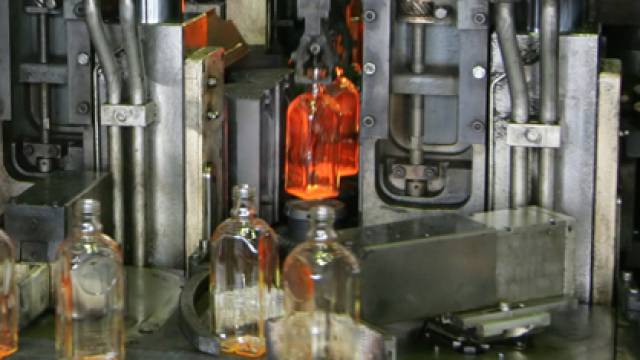In the recent debate hosted by FEVE, a panel discussion closed the loop of an event where container glass industry representatives, European Parliament and European Commission delegates, along with leaders from the Wuppertal Institute and Mc Kinsey, tried to answer to the debate’s question.
“Closed loop recycling for glass packaging: a must for a resource efficient Europe; higher recycling targets welcome but in a level-playing field”
The above 144-character tweet sums up the key conclusions drawn in the debate “Circular economy: a waste of time or time for waste?” hosted by FEVE – the European Container Glass Federation. A panel discussion closed the loop of an event where container glass industry representatives, European Parliament and European Commission delegates, as well as thought leaders from the Wuppertal Institute and Mc Kinsey, tried to answer to the debate’s question. And the answer is clear: time has come to dramatically turn waste into valuable resources as a key pillar of a competitive EU circular economy.
“Major efforts have been made already in implementing the EU 2020 strategy,” argued EU policy makers, “but efforts by all stakeholders are needed to ensure that the ‘circular economy’ is not reduced to a trendy social media hash tag, but actually becomes the mindset that informs all European and global business models. This is a major opportunity for the European economy to get out of deep water.”
“The transition to a circular economy is a major opportunity for Europe to strengthen and to enroot competitiveness,” commented Vittorio Prodi, Member of the European Parliament with the Progressive Alliance of Socialists and Democrats. “Measures need to be taken to support industries which have made strides in recycling waste as a precious resource – such as the container glass sector – and to encourage them to continue to produce in Europe. The manufacturing sector is the economic powerhouse of the EU, and the waste treatment itself can create new business opportunities and new jobs. In such a difficult time for the economy, the EU can’t afford to miss such opportunities. On the contrary we need to be the frontrunners.”
The industry encouraged the European Commission to develop a more-friendly legislative framework that would acknowledge the superiority of materials, which, once produced, become permanent resources to be reused infinitely to generate new products, without any quality loss. Structural, long term measures could be taken, which promote effective and closed loop recycling over other waste management practices where the resources are down-cycled, burnt or destined to landfills.
Looking at the container glass industry, more recycled glass bottles mean more precious resources for new production, less environmental impacts, less costs, more local direct and indirect jobs. More than 70% of used glass bottles are today recycled and the industry’s ambition is to capture inside the production loop the missing 30%.
“According to a recent study, for one job in a glass manufacturing plant, 1.3 local jobs are created along the recycling chain: glass recycling is therefore good for the environment, but also for people and for business,” says Stefan Jaenecke, President of FEVE. “Our ambition is to recycle more and more glass into new bottles. No limits to that provided that recycled glass is of good quality, and that any legislative measures ensure a level-playing field for all packaging materials.”
FEVE is the association of European manufacturers of glass containers and machine-made glass tableware. The members of FEVE produce over 20 million tonnes of glass per year. The association has some 60 corporate members belonging to approximately 20 independent corporate groups. Manufacturing plants are located across 23 European States and include global blue chip and major companies working for the world’s biggest consumer brands.
The European container glass industry provides a wide range of glass packaging products for food and beverages as well flacons for perfumery, cosmetics and pharmacy to their European and world customers. With its 160 manufacturing plants distributed all over Europe, it is an important contributor to Europe’s real economy and provides direct employment to about 50,000 people, while creating a large number of job opportunities along the total supply chain.




